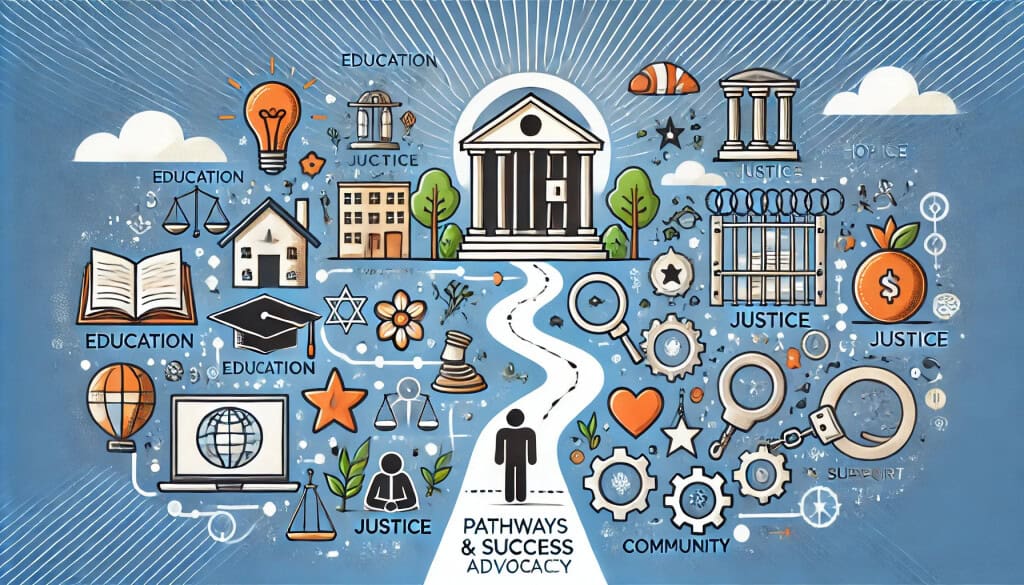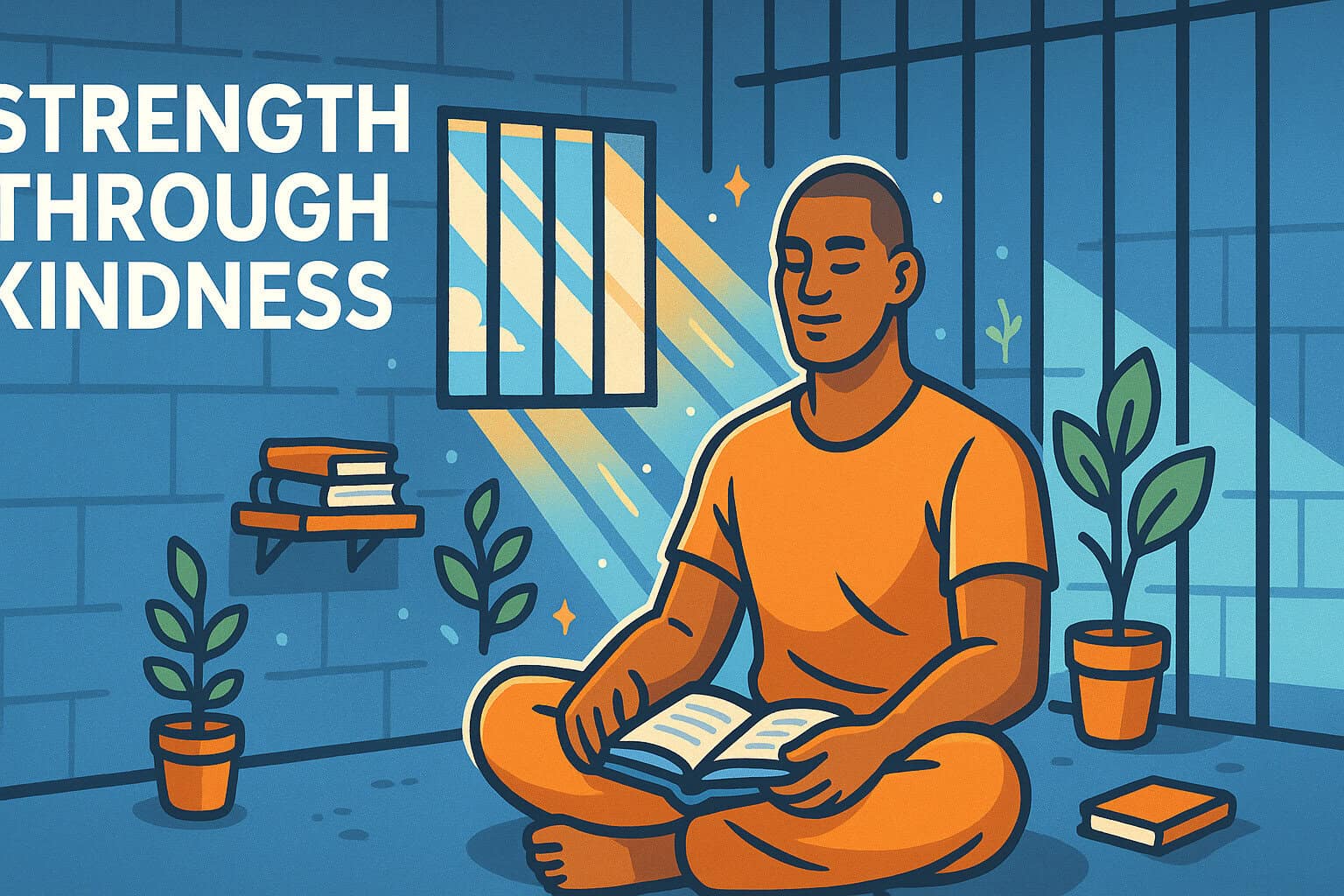A Different Kind of Strength
In prison, strength is often measured by toughness—how hard you look, how loud you speak, how well you can fight or defend your space. But what if true strength isn’t in how hard you become, but in how tender you choose to stay?
As Bianca Sparacino wrote:
The kindest people are not born that way, they are made. They are the souls that have experienced so much at the hands of life… They choose to believe in goodness, because they have seen firsthand why compassion is so necessary.
For many incarcerated people, this hits home. You weren’t born angry or closed off. Life—poverty, violence, betrayal, abandonment—taught you to build armor. But deep down, you may still long for peace, connection, and love.
The good news is that it’s never too late to soften without breaking. To be kind without being weak. To choose tenderness without losing your edge.
Pain Can Make You Bitter… or Better
Everyone inside has a story. For some, it starts with abuse, neglect, or survival in violent environments. You’ve probably had to shut down emotionally just to cope. And when that kind of pain isn’t processed, it can turn into rage or apathy.
But pain doesn’t have to harden you. It can also awaken you.
When you begin to reflect—through journaling, reading, praying, or deep conversation—you realize that every loss taught you something. Every betrayal sharpened your awareness. And every mistake pushed you to grow.
You can take that pain and build walls… or build wisdom. Your choice.
Why Tenderness Matters in Prison
It might sound strange to talk about “tenderness” in a place that feels cold and uncaring. But here’s the truth: the people who survive prison in the healthiest way are not the loudest or hardest—they’re the ones who keep their humanity intact.
Tenderness doesn’t mean letting people walk over you. It means:
- Showing respect, even when others don’t.
- Listening more than reacting.
- Encouraging younger men instead of mocking them.
- Writing home with love, not just updates.
- Forgiving yourself so you don’t stay stuck.
These acts don’t weaken you. They elevate you.
Real Examples of Strength Through Softness
- Malcolm X: He entered prison angry, combative, and self-destructive. But through reading and reflection, he transformed into a disciplined, articulate leader. His power came not from force, but from clarity, compassion, and purpose.
- Nelson Mandela: After 27 years in prison, he walked out without hate. He led with reconciliation, not revenge. That’s real strength—the kind that changes nations.
- You: Maybe you’ve helped a cellmate through grief. Maybe you’ve chosen not to retaliate when provoked. Maybe you’ve mentored a younger guy. That’s tenderness. That’s leadership.
How to Grow a Softer Heart Without Losing Your Edge
Here are practical steps you can take:
Journal Honestly
Take 10 minutes a day to write:
- What am I feeling?
- What hurt me today?
- Who did I help?
- Who helped me?
You’ll start to notice patterns and see your growth.
Read Books That Open You Up
Try titles like:
- The Four Agreements by Don Miguel Ruiz
- Letters to a Young Brother by Hill Harper
- Man’s Search for Meaning by Viktor Frankl
- The Autobiography of Malcolm X
Reading expands empathy. It helps you think beyond your surroundings.
Breathe Before Reacting
When tension rises, pause. Breathe deeply for 10 seconds. You don’t have to react to everything. Responding with calmness protects your peace.
Call or Write with Intention
When you connect with family or loved ones, go deeper than the usual:
- Ask how they’re doing emotionally.
- Apologize if you’ve been distant.
- Say “I love you” even if it feels awkward.
These moments rebuild bridges.
For Families: Lead with Love
If you’re reading this on the outside, know this: your love matters. Even if your incarcerated loved one seems hard or distant, your tenderness reaches them.
- Send letters filled with encouragement.
- Share what you’re learning in your own life.
- Read books together and discuss them.
- Remind them who they really are—not just who they’ve been.
Conclusion: The Power of Being Kind Anyway
In a place where people expect you to be cold, violent, or numb—being kind is a radical act. Choosing compassion in an environment built on control and pain is a rebellion of the soul.
You were made for more than survival. You were made to grow, to lead, to heal, and to help others do the same.
Don’t let pain make you bitter. Let it make you better.
A Gentle Reminder by Bianca Sparacino
“The kindest people are not born that way, they are made.
They are the souls that have experienced so much at the hands of life, they are the ones who have dug themselves out of the dark, who have fought to turn every loss into a lesson.
The kindest people do not just exist — they choose to soften where circumstance has tried to harden them, they choose to believe in goodness, because they have seen firsthand why compassion is so necessary.
They have seen firsthand why tenderness is so important in this world.”
This excerpt comes from page 21 of A Gentle Reminder, which is a collection of poetic reflections and affirmations focused on healing, resilience, and self-worth.
About Pathways to Success and Georgia Prisoners Speak (GPS)

At Georgia Prisoners Speak (GPS), we believe that education is one of the most powerful tools for breaking cycles of incarceration and building a better future. That’s why we created the Pathways to Success program—a dedicated initiative providing educational resources, skill-building guides, and financial literacy tools tailored specifically for prisoners and their families.
GPS is a prison reform advocacy platform focused on exposing systemic injustices, pushing for policy change, and empowering incarcerated individuals with the knowledge they need to successfully re-enter society. Our educational articles are part of this mission, ensuring that those impacted by incarceration have access to practical guidance that can help them build stability, opportunity, and financial independence.
To explore more resources, visit Pathways to Success.

